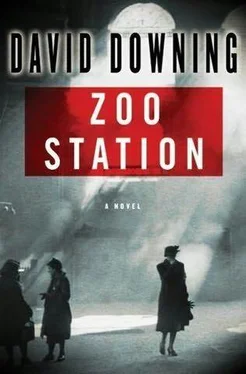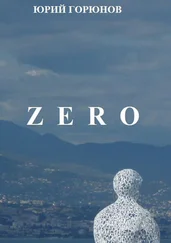David Downing - Zero Station
Здесь есть возможность читать онлайн «David Downing - Zero Station» весь текст электронной книги совершенно бесплатно (целиком полную версию без сокращений). В некоторых случаях можно слушать аудио, скачать через торрент в формате fb2 и присутствует краткое содержание. Жанр: Шпионский детектив, на английском языке. Описание произведения, (предисловие) а так же отзывы посетителей доступны на портале библиотеки ЛибКат.
- Название:Zero Station
- Автор:
- Жанр:
- Год:неизвестен
- ISBN:нет данных
- Рейтинг книги:5 / 5. Голосов: 1
-
Избранное:Добавить в избранное
- Отзывы:
-
Ваша оценка:
- 100
- 1
- 2
- 3
- 4
- 5
Zero Station: краткое содержание, описание и аннотация
Предлагаем к чтению аннотацию, описание, краткое содержание или предисловие (зависит от того, что написал сам автор книги «Zero Station»). Если вы не нашли необходимую информацию о книге — напишите в комментариях, мы постараемся отыскать её.
Zero Station — читать онлайн бесплатно полную книгу (весь текст) целиком
Ниже представлен текст книги, разбитый по страницам. Система сохранения места последней прочитанной страницы, позволяет с удобством читать онлайн бесплатно книгу «Zero Station», без необходимости каждый раз заново искать на чём Вы остановились. Поставьте закладку, и сможете в любой момент перейти на страницу, на которой закончили чтение.
Интервал:
Закладка:
But what did he know? There could be ruses within ruses; this could be some ludicrously Machiavellian plot the NKVD had thought up on some drunken weekend and set in motion before they sobered up. Or everyone concerned could be an incompetent. Or just having a bad day.
“Shit,” he muttered to himself. He liked the idea of the Soviets having the German fleet dispositions for the Baltic. He liked the idea of doing something, no matter how small, to put a spoke in the bastards’ wheels. And he really wanted the favors he intended to ask in return.
But was he fooling himself? Falling for all the usual nonsense, playing boys’ games with real ammunition. When did self-sacrifice become a warped form of selfishness?
There were no answers to any of this, he realized. It was like jumping through an open window with a fuzzy memory of which floor you were on. If it turned out to be the ground floor, you bounced to your feet with an heroic grin. The fifth, and you were jam on the pavement. Or, more likely, a Gestapo courtyard.
A life concerned only with survival was a thin life. He needed to jump. For all sorts of reasons, he needed to jump.
He took a long last look at the view and started back down the slope, imagining the details of his plan as he did so. A restaurant close to the Stary Rynek provided him with a plate of meat turnovers, a large glass of Silesian beer, and ample time to imagine the worst. By two o’clock he was slowly circling the large and well-populated square, and manfully repressing the periodic impulse to simply disappear into one of the adjoining streets.
She appeared at his shoulder halfway through his second circuit, her ankle-length coat unbuttoned to reveal the same skirt and blouse. This time, he thought, there was worry in the eyes.
She managed to leave the question unspoken for about thirty meters, and then asked it with almost angry abruptness: “So, will you do this job for us?”
“With one condition,” Russell told her. “I have a friend, a Jewish friend, in Berlin. The police are looking for him, and he needs to get out of the country. You get him across the border, and I will do the job for you.”
“And how are we supposed to get him across the border?” she asked, suspicion in her tone.
“The same way you always have,” Russell said. “I was in the Party myself once-remember? I knew people in the Pass-Apparat,” he added, stretching the truth somewhat. “Everyone knew about the escape routes into Belgium and Czechoslovakia.”
“That was many years ago.”
“Not according to my information,” Russell bluffed.
She was silent for about fifty meters. “There are a few such routes,” she admitted. “But they are not safe. If they were, we would not be asking you to bring out these papers. Maybe one person in three gets caught.”
“In Berlin it’s more like three out of three.”
She sighed. “I can’t give you an answer now.”
“I understand that. Someone will have to contact me in Berlin to make the arrangements for my friend’s journey, and to give me the details of the job you want me to do. Tell your bosses that the moment my friend calls me from outside the Reich, I will collect your papers from wherever they are and bring them out.”
“Very well,” she said after a moment’s thought. “You had better choose a point of contact in Berlin.”
“The buffet at Zoo Station. I shall be there every morning this week. Between nine and ten.”
She nodded approvingly. “And a mark of identification. A particular book works well.”
“Storms of Steel? No, half the customers could be reading that. Something English.” He mentally pictured his bookshelves at Neuenburgerstrasse. “Dickens. Martin Chuzzlewit.”
“A good choice,” she agreed, though whether for literary or other reasons she didn’t say. “Your contact will say that he’s been meaning to read it, and will ask you if it’s any good.”
“He?” Russell asked.
“Or she,” she conceded.
Nine o’clock on monday morning found him in the Zoo Station buffet, his dog-eared copy of Martin Chuzzlewit prominently displayed on the counter beside his cup of mocha. He wasn’t expecting the Soviets to respond that quickly, and he wasn’t disappointed-10:00 came and went with no sign of any contact. He collected the car from outside the zoo and drove across town to the Wiesners. There was no obvious police presence outside, which probably meant that they’d recruited some local busybody for their observation chores. A curtain twitched as he walked up the outside steps, but that could have been coincidence.
The sense of raw pain had gone from the Wiesners’ flat-replaced by a grim busyness, a determination to do whatever needed doing. There was grief to spare, the faces seemed to say-no need to spend it all at once.
And there was good news, Frau Wiesner told him. They had old friends in England, she said, in Manchester. The Doctor had written to them several weeks ago, and a reply had finally arrived, offering a temporary home for the girls. They had tickets to travel a week from Thursday.
“I may have more good news,” Russell told her. “I have friends who may be willing to smuggle Albert across the border.”
Mother and daughters all stared at him in amazement. “What friends?” Frau Wiesner asked.
“The comrades,” he said simply. The comrades they had both abandoned, he thought.
“But I had no idea you were…”
“Like you, I left a long time ago. And I can’t go into details about the arrangements. But if I can fix things, can you get in touch with Albert at short notice?”
“Yes.” The hope in her eyes was painful to see.
“And will he trust me, do you think?
She smiled at that. “Yes, he likes you.”
“And if we can get him out, there is nothing to keep you here?”
“The lack of a visa. Nothing else.”
“I’m still working on that.”
He tried to write that afternoon, but the words refused to matter. As evening fell he took himself off to the Alhambra and sat through an overblown Hollywood musical, murmuring sour asides to himself in the dark. The film had been made on the sort of budget which would feed a small country, but was mercifully devoid of consciousness-raising pretensions. The consciousness-lowering effect was presumably accidental.
The Ku’damm was gearing up for the night as he emerged, thick with human and motorized traffic. He walked slowly westward with no real destination in mind, looking in windows, studying faces, wondering if the Soviets would agree to his terms. People lined up outside the theaters and cinemas, streamed in and out of the restaurants, most of them laughing or happily talking, living the moment as best they could. A police car careened up the center of the wide road, its siren parting the traffic like waves, but the visible signs of a police state were thin on the ground. In fact, Russell thought, it was the absence of violence which told the real story. The blood and the broken glass, the groups of men on corners, clutching their razors and itching for a brawl-they were all gone. The only violent lawbreakers left on the streets of Berlin were the authorities.
He walked back down the opposite pavement, picked up the car, and drove home.
Tuesday offered more of the same: waiting in vain at the buffet counter, working with words like a juggler in mittens. Frau Heidegger seemed irritating rather than quirky, Paul almost provokingly gung-ho in his description of the previous Saturday’s Jungvolk outing. Even the weather was bad: A cold rain fell throughout the day and into the evening, creating lake-size puddles in many of the streets. The Hanomag, as Russell discovered on his way to collect Effi, had a less-than-waterproof floor.
Читать дальшеИнтервал:
Закладка:
Похожие книги на «Zero Station»
Представляем Вашему вниманию похожие книги на «Zero Station» списком для выбора. Мы отобрали схожую по названию и смыслу литературу в надежде предоставить читателям больше вариантов отыскать новые, интересные, ещё непрочитанные произведения.
Обсуждение, отзывы о книге «Zero Station» и просто собственные мнения читателей. Оставьте ваши комментарии, напишите, что Вы думаете о произведении, его смысле или главных героях. Укажите что конкретно понравилось, а что нет, и почему Вы так считаете.












